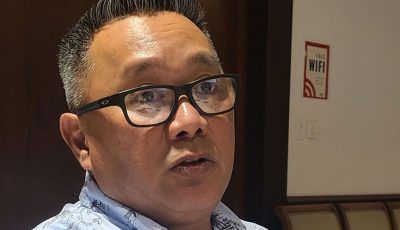CW situation shocking and concerning for stakeholders
Sending home workers ‘heartless and ruthless’
The recent announcement of the U.S. Citizenship and Immigration Services reaching its 2016 fiscal year cap for the CNMI-only transitional worker program and its rule to send home those who have rejected extension petitions and their families have sent shockwaves across the CNMI, especially for stakeholders and CW status holders.
The Hotel Association of the Northern Mariana Islands said they were “extremely shocked” when the news came out.
“As an association that represents the driving force of our economy, we plead with our U.S. congressman and our administration to negotiate a solution for this immediate crisis. Although we support growth, that is, controlled growth, in the CNMI, we cannot close the doors of the existing businesses,” HANMI’s official statement said.
“We are currently surveying the immediate effect this crisis will have on our members,” it added.
According to HANMI chair Gloria Cavanagh, it is “very possible” that the CNMI will once again experience closures or limited hours of businesses due to worker shortage, similar to what the Commonwealth experienced earlier this year.
“I have just spoken to a large tour company and they had expressed the possibility of closure by this summer,” Cavanagh said.
HANMI said that “for every one employee in our industry, it affects 1.72 employees of supporting businesses.”
Saipan Chamber of Commerce president Velma Palacios said that the situation is “very concerning” and like HANMI, they will also be conducting surveys on how many of employees of their members could possibly be affected.
Palacios added that they also coursed questions from their members regarding the situation through the Office of the Governor. Among those that they want to clarify is the 10-day limit for workers with rejected extension petitions to stay on the island as well as how the 240-day grace period will affect those with rejected petitions.
‘Heartless and ruthless’
Human resource professional Frank Gibson, who wrote his concerns to Delegate Gregorio Kilili Camacho Sablan (Ind-MP), said he was shocked, not at the news that the cap was reached “but by the denial of extensions of existing CW-1s.”
“USCIS issued too many new visas if their numbers don’t allow the extensions of existing employees. This means that every CW-1 that will expire before 1 October and was not received by 5 May will be required to go home—no matter the job, the length or residence in the CNMI, the length of service to the employer, the presence of U.S. children, or whether the position can be filled locally—regardless of the impact on the individual, their family or the employing business,” Gibson said in his letter to Sablan.
According to Gibson, he knows of one business that will have to send home seven nurses, three physical therapy technicians, and a physical therapist that are “needed” in the community.
“This is unacceptable. USCIS should never have accepted new visa petitions that would prevent the extension/renewal of current visa holders. This means that the 500 CW-1 visas for Best Sunshine and the 500 CW-1 visas for Honest Profit construction workers are going to replace long-term workers for other companies,” Gibson stated.
Gibson said the current situation shows that the worker crisis starts now, “not in 2019.”
“If existing visa holders are now exceeding the cap, it means USCIS approved too many new visas, resulting in this ‘heartless and ruthless’ adverse action. Why was there no protective measure for existing approved visa holders?” Gibson said.
“It also means that, since the cap has been reached, every new petition accepted for an employment start date after 1 October 2017 will result in a current employee with visa renewal date later in the year being denied an extension,” he added.
Gibson said that the current situation is “extremely unfair to employers who have done their job in timely extension processing so they can continue their necessary workers.”
“If there has to be a denial, it should have been to the employer whose request for new workers put us over the limit. USCIS has records that show numbers of existing CW-1 workers. Their continuation should have had priority,” Gibson said.
Gibson said there is a need to change the existing law regarding the CW program.
“This is the continuation of a failed law and regulation. Even though it is obvious that the decrease of alien workers will be disastrous to our community and our economy, we›re forced to continue down that path because it’s the law. Someone has to acknowledge this and bring this failed plan to a close before the CNMI economy collapses,” he said.
Gibson is also an officer of the Society of Human Resources Management-NMI Chapter, which will be having a membership meeting this Thursday at the Pacific Islands Club Saipan to discuss CW issues.
Remedy
CNMI Department of Labor Secretary Edith DeLeon Guerrero said she is hopeful that a remedy will be given to those who were caught in the cap.
“I am hopeful that some remedy unique to our needs especially for on-going businesses with start work dates within FY 16 time period that may be caught in the cap and have gone through the rigor of labor market testing is considered knowing that FY 16 is still four months away from expiring,” Guerrero said.
“The economic effects of a four-month gap are something to be concerned about and any remedy is what we can be hopeful for,” she added.



























